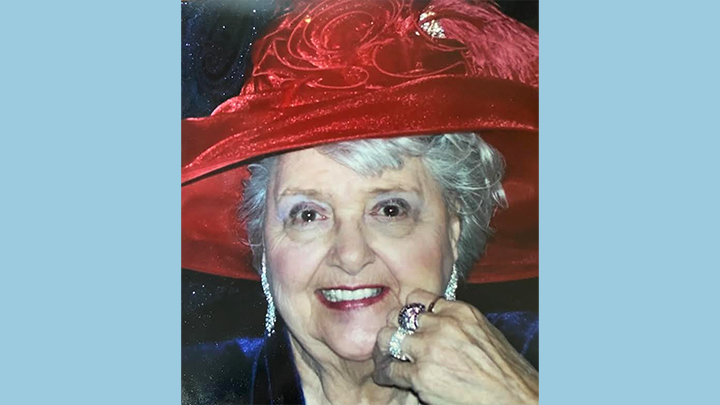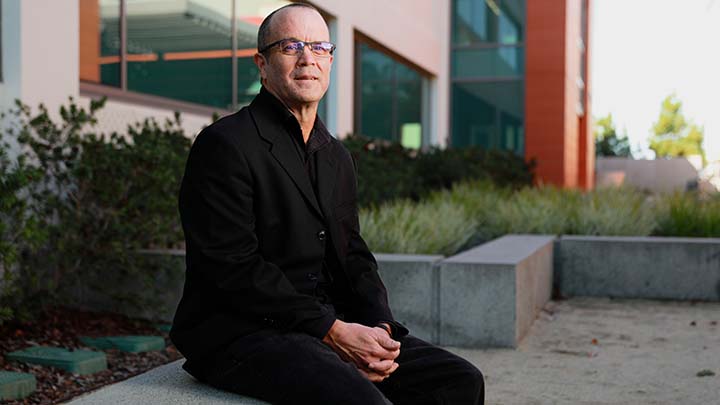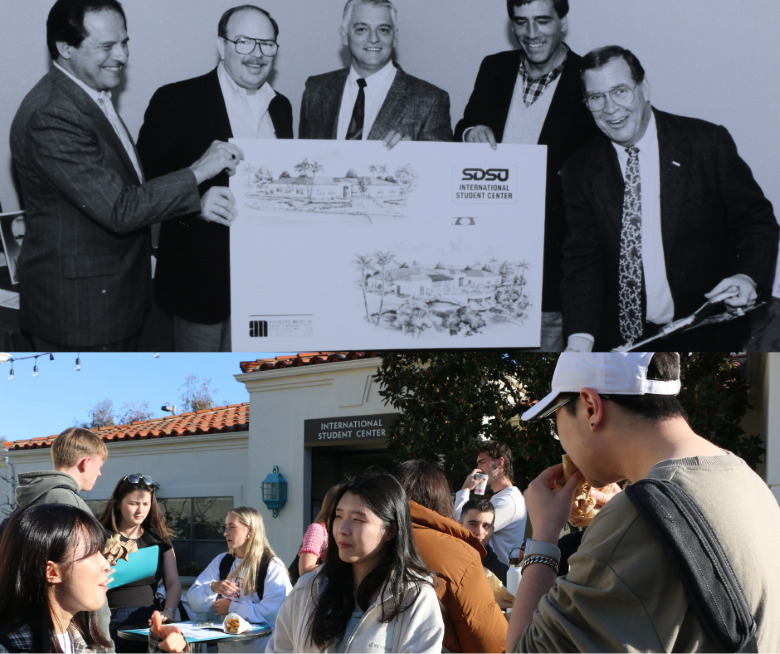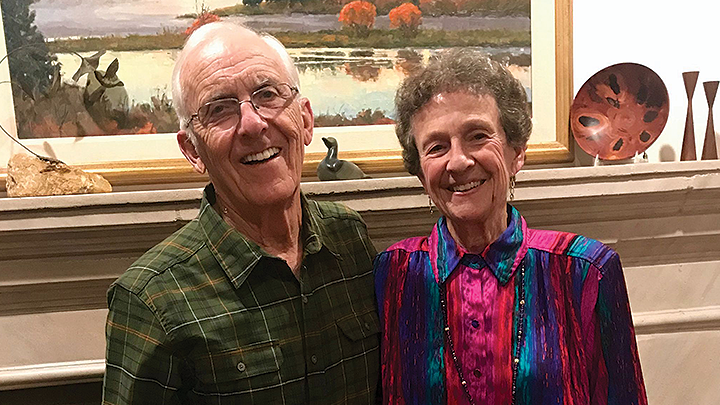Gift from longtime educator gives entrepreneurial programs a step up
Mary Lawlor hopes her support will spark initiatives in patient caregiving.

To understand why Mary Lawlor’s philanthropic gift to San Diego State University’s entrepreneurship program is being recognized with the naming of a set of stairs on campus, think about counting bugs outdoors. And robotics in health care. No, really.
SDSU has buildings, conference rooms and even an elevator lobby named for various donors of prominence or their families, but the Marylinn J. Metzke Staircase on the exterior of the Engineering and Interdisciplinary Sciences Complex will be the first of its kind.
Lawlor, whose 1983 teaching credential from the SDSU College of Education started decades of subsequent employment as a teacher and administrator in two San Diego County school districts, is honoring her late aunt. Metzke was a divorcée whose 1970s-era relocation to California from southeastern Wisconsin prompted Lawlor’s family to follow many years later.
Now here’s where the bugs come in. As an undergraduate at the University of Wisconsin, Lawlor selected natural resource management for her major — at one point she thought about becoming a park ranger — and both her Midwest lifestyle and her studies meant a lot of time outdoors.
“I spent a lot of time wandering out in the country where we lived,” she said. “I took classes where you’d learn how to figure out what kind of a tree it was based on the leaf patterns, (and) go digging around and counting bugs based on how many were in a certain measurement area.”
Unlike most of the older buildings at SDSU, the architecture of the EIS complex, designed by Los Angeles-based AC Martin and one of the campus’s newest structures, puts its staircases outside. When it came time to pick a feature to name after her aunt, she picked the one connecting a sidewalk and a platform on the northeast side. “It just kind of fit my philosophy of being an indoor/outdoor kind of person and enjoying the resources that are available,” Lawlor said.
A staircase brings to mind “somebody that can go walk up the stairs, appreciate the sun and appreciate the architecture,” she said.
Lawlor’s father died when she was a baby, and Aunt Marlin, as Metzke was known, was part of a family of brothers and cousins and lived in East Troy, a village bisected by Interstate 43 in southeastern Wisconsin.
Metzke moved to California and began working for what back then was typically called “the telephone company.” She kept in touch with Lawlor’s family and made return visits from time to time, eventually convincing them to move as well, and they settled in Santee, east of San Diego.
Lawlor’s career in education included teaching at Mission Bay High School; her administrative positions began with a job as assistant principal at what was then Pershing Junior High in San Diego’s San Carlos neighborhood. She was founding principal of the San Diego Schools’ Language Academy magnet school, and completed her career in the Sweetwater Unified School District as principal of Eastlake High.
Lawlor's $150,000 gift will go to SDSU’s entrepreneurial initiatives, including the ZIP Launchpad, which is housed in EIS and supports budding entrepreneurs and innovators. That’s another choice with personal meaning for her.
Both her mother and her aunt, who died in 2015 at age 88, had illnesses requiring full time health care. “I was interested in merging (caregiving) with robotics or modern technology,” Lawlor said during a telephone interview in which she herself was laid up with a broken leg.
“The caregiving profession is behind the times, I believe, as far as how they incorporate modern innovations into how people are cared for,” she said. Her previous work with the ZIP Launchpad showed her its work with innovation, something she said is still needed in medical technology, including its use of robotics.
At home with her own health caregivers, “I just want a robot to come in and change my bed, cook me breakfast,” she joked. “But that’s not the way it is. It’s still based on human interaction.”
Now retired, Lawlor has always believed in donating to her alma maters and has previously supported the Launchpad, a College of Education endowed scholarship for leadership majors and the Aztec Cooperative Fund with her gifts.
“People help you and you owe back, and try to help other people,” she said.



